What we're about...
The Addiction Treatment Marketing Organization (ATMO) was established by Ben Cort, Director of Professional Relations at CeDAR, as a working group to study and promote issues pertaining to the ethical marketing of addiction treatment. In addition to Ben, current ATMO steering membership includes George Jahn, Founder of Sober Living in Delray, Gina Thorne, VP Marketing at Lakeview Health, and Kris Washington and Kevin Zundl, Founding Partners of Psynchronous Communications, Inc. ATMO was formed in response to intensifying concerns among addiction professionals that unethical marketing practices are increasingly threatening to misinform prospective clients and damage the credibility of the addiction treatment field. Use of unscrupulous marketing practices has been an open secret in the addiction treatment community for some time, and is now beginning to gain the attention of the general public. Driven by sea changes in the addiction treatment industry, some center marketers are engaging, whether knowingly or inadvertently, in questionable practices and in some cases illegal practices in an effort to protect or increase revenue. ATMO is intended to raise awareness, offer insights, encourage discussion and offer guidance to help the treatment industry self-regulate this most important segment of the medical field.
What's driving unethical practices?
The field of addiction, misuse and co-occurring disorder treatment has undergone substantial change in recent years. These changes are converging to alter the business of addiction treatment. The Affordable Care Act, mandating addiction treatment insurance coverage, has made addiction treatment services more accessible to more people in need. New attitudes and discussions about our understanding of the disorders of addiction and misuse, some reflected in the revised DSM5, are helping raise awareness and reduce stigma. A wave of treatment center mergers and acquisitions, many driven by recent injections of private investment capital, is creating new competition for clients and professional referents. And a raging opioid epidemic gripping much of the country has greatly intensified the need for care.
These conditions of rapid change, new competition and intensified focus on the issue of addiction have led to the creation of many new treatment programs, sparked new conversations, led to new learning and modalities, and increased societal and legislative awareness and action.
But the same factors reshaping and reinvigorating our industry are also creating the ideal conditions for unethical marketing and, in some cases, outright fraud. The issue of unethical marketing of addiction treatment services runs the gamut from inadvertent unawareness to purposeful predation. The small number of truly bad actors purposefully taking advantage of people in need and knowing defrauding insurers and clients fall within the jurisdiction of the law enforcement community who are actively and aggressively pursuing them. Our focus at ATMO is on the vast majority of treatment centers who are legitimate, law-abiding organizations providing quality care. For these centers, the pressure of sustaining a healthy client population (census) to fund their program has intensified. And when it becomes harder and more expensive for centers to attract prospective clients and referents, they may engage in more aggressive forms of marketing or hire third-party marketing companies to increase marketing returns. Another challenge these centers face is understanding and managing a complex and ever-changing world of internet marketing. When centers are under more pressure to generate revenue and when they know less about the specifics of how their marketing works, the risk of engaging in unethical marketing practices increases. Some centers may engage in unethical practices unknowingly by not fully understanding how their marketing is being conduced by third parties or contractors. For others, the temptation to enter into unethical practices can be overwhelming when faced with massive or unethical competition, or convinced that engaging in these practices, while wrong, supports a grater underlying good. No matter the reason, today's business environment and more-complex marketing tactics makes engaging in unethical marketing practices easier than ever before.
What's at risk?
A lot. When centers engage in unethical marketing practices, it threatens their reputation, exposes them to potential litigation, and calls into question the veracity of the entire addiction treatment field. But perhaps the biggest risk of acting unethically is that a person in need of care may not find the help they need as quickly as possible. The issue of ethics is more important to the practice of addiction treatment than to many other forms of medical care. A large part of addiction treatment is about forming lasting bonds of trust between councilor and client, and asking clients to change what they believe. The credibility of treatment professionals plays a direct and critical role in the effectiveness of care. It may be said that a center's marketing is a direct extension of its practice. The relationship between a client and a center begins the moment they gain awareness of the program and finds a spark of hope in its message. When this message is truthful and accurate, a client will feel cared for from the very first moment they contact the center. But when a prospective client finds hope in a message only later to learn that this was misleading or inaccurate, not only does this call into question their ability to believe in the center's ability to help them, but it also may make them have to start their search again, extending the time between wanting help and getting help. Unethical marketing can make it harder for people to find the help they need. In some cases leading them to check into one center only to be disappointed, disillusioned, financially drained, and unhealed weeks or months later. Unethical marketing hurts clients and exposes centers to risk. Nobody wins in the long run.

